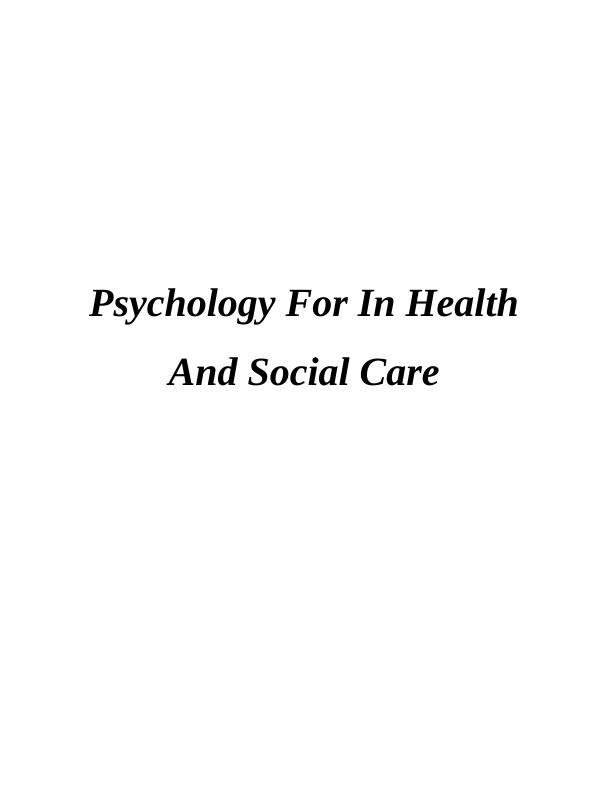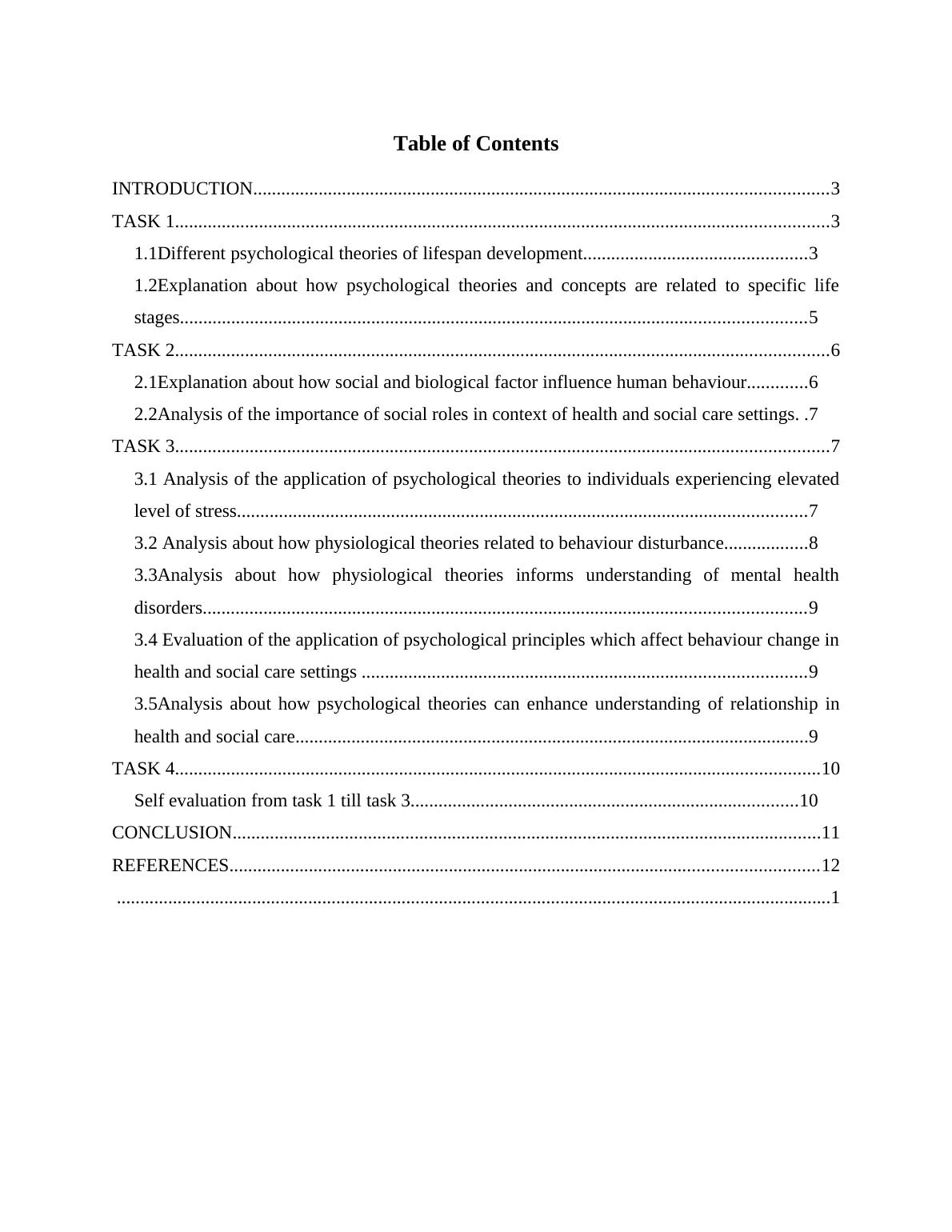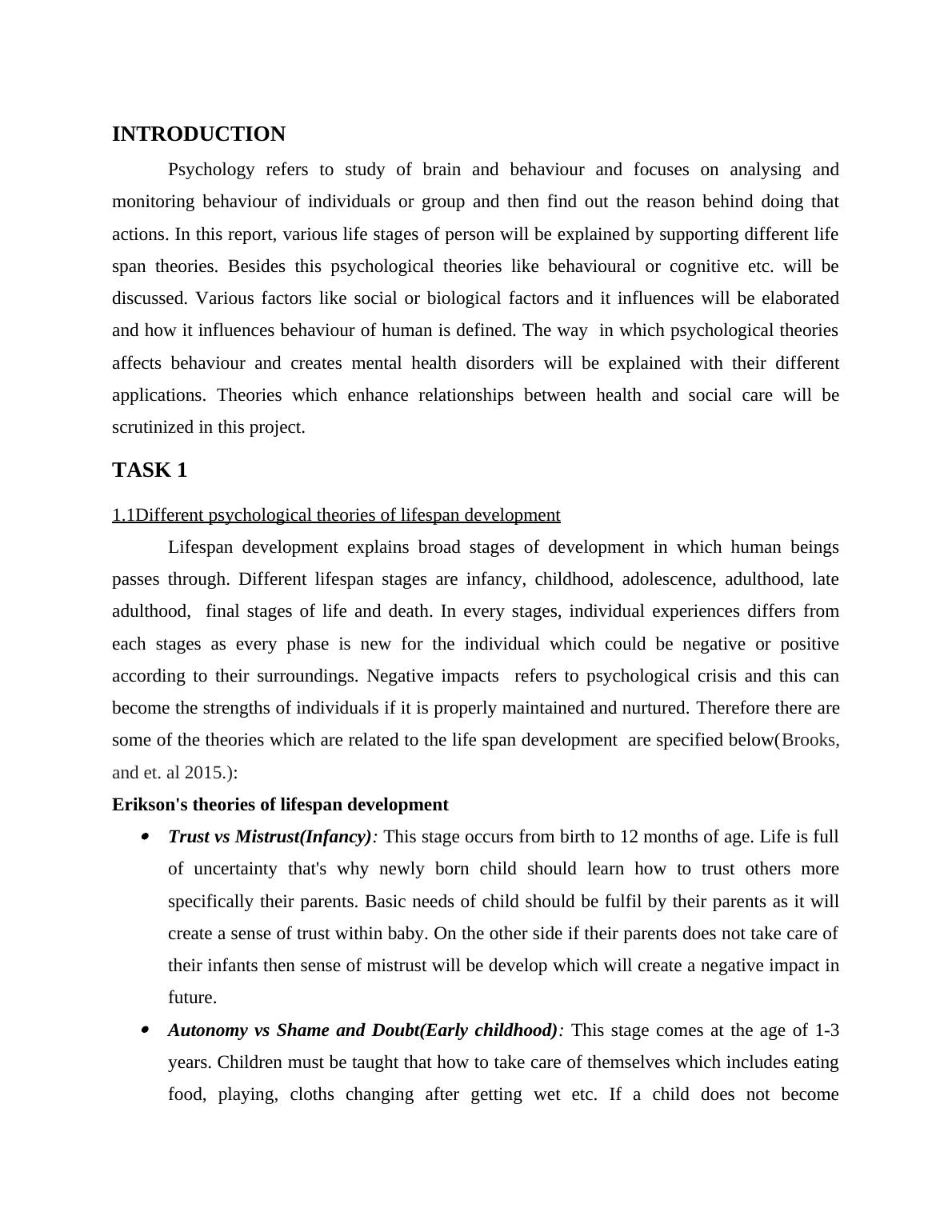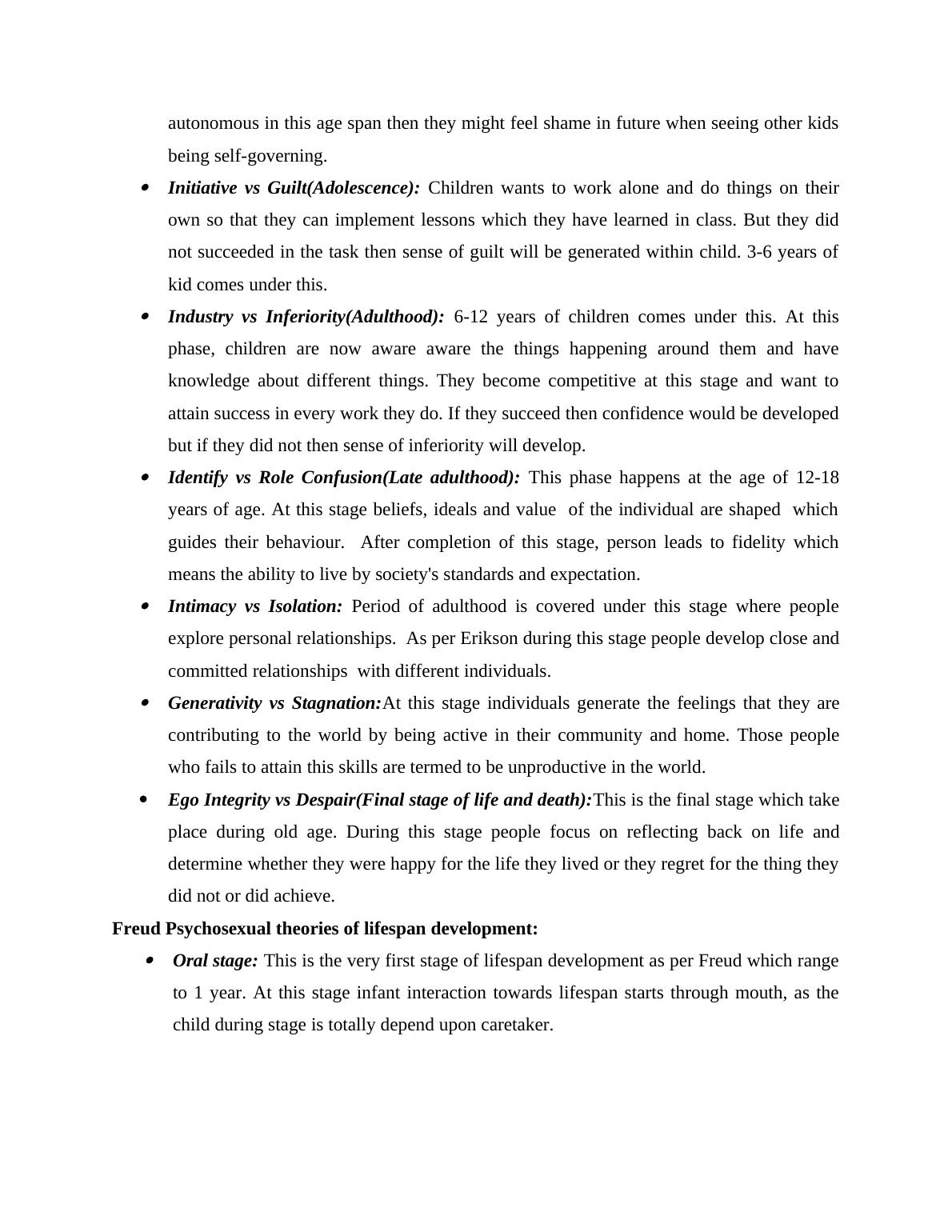Psychology For In Health And Social Care
14 Pages4044 Words52 Views
Added on 2020-12-24
Psychology For In Health And Social Care
Added on 2020-12-24
ShareRelated Documents
Psychology For In HealthAnd Social Care

Table of ContentsINTRODUCTION...........................................................................................................................3TASK 1............................................................................................................................................31.1Different psychological theories of lifespan development................................................31.2Explanation about how psychological theories and concepts are related to specific lifestages......................................................................................................................................5TASK 2............................................................................................................................................62.1Explanation about how social and biological factor influence human behaviour.............62.2Analysis of the importance of social roles in context of health and social care settings. .7TASK 3............................................................................................................................................73.1 Analysis of the application of psychological theories to individuals experiencing elevatedlevel of stress..........................................................................................................................73.2 Analysis about how physiological theories related to behaviour disturbance..................83.3Analysis about how physiological theories informs understanding of mental healthdisorders.................................................................................................................................93.4 Evaluation of the application of psychological principles which affect behaviour change inhealth and social care settings ...............................................................................................93.5Analysis about how psychological theories can enhance understanding of relationship inhealth and social care..............................................................................................................9TASK 4..........................................................................................................................................10Self evaluation from task 1 till task 3...................................................................................10CONCLUSION..............................................................................................................................11REFERENCES..............................................................................................................................12.........................................................................................................................................................1

INTRODUCTIONPsychology refers to study of brain and behaviour and focuses on analysing andmonitoring behaviour of individuals or group and then find out the reason behind doing thatactions. In this report, various life stages of person will be explained by supporting different lifespan theories. Besides this psychological theories like behavioural or cognitive etc. will bediscussed. Various factors like social or biological factors and it influences will be elaboratedand how it influences behaviour of human is defined. The way in which psychological theoriesaffects behaviour and creates mental health disorders will be explained with their differentapplications. Theories which enhance relationships between health and social care will bescrutinized in this project. TASK 11.1Different psychological theories of lifespan developmentLifespan development explains broad stages of development in which human beingspasses through. Different lifespan stages are infancy, childhood, adolescence, adulthood, lateadulthood, final stages of life and death. In every stages, individual experiences differs fromeach stages as every phase is new for the individual which could be negative or positiveaccording to their surroundings. Negative impacts refers to psychological crisis and this canbecome the strengths of individuals if it is properly maintained and nurtured. Therefore there aresome of the theories which are related to the life span development are specified below(Brooks,and et. al 2015.):Erikson's theories of lifespan developmentTrust vs Mistrust(Infancy): This stage occurs from birth to 12 months of age. Life is fullof uncertainty that's why newly born child should learn how to trust others morespecifically their parents. Basic needs of child should be fulfil by their parents as it willcreate a sense of trust within baby. On the other side if their parents does not take care oftheir infants then sense of mistrust will be develop which will create a negative impact infuture. Autonomy vs Shame and Doubt(Early childhood): This stage comes at the age of 1-3years. Children must be taught that how to take care of themselves which includes eatingfood, playing, cloths changing after getting wet etc. If a child does not become

autonomous in this age span then they might feel shame in future when seeing other kidsbeing self-governing. Initiative vs Guilt(Adolescence): Children wants to work alone and do things on theirown so that they can implement lessons which they have learned in class. But they didnot succeeded in the task then sense of guilt will be generated within child. 3-6 years ofkid comes under this.Industry vs Inferiority(Adulthood): 6-12 years of children comes under this. At thisphase, children are now aware aware the things happening around them and haveknowledge about different things. They become competitive at this stage and want toattain success in every work they do. If they succeed then confidence would be developedbut if they did not then sense of inferiority will develop. Identify vs Role Confusion(Late adulthood):This phase happens at the age of 12-18years of age. At this stage beliefs, ideals and value of the individual are shaped whichguides their behaviour. After completion of this stage, person leads to fidelity whichmeans the ability to live by society's standards and expectation.Intimacy vs Isolation: Period of adulthood is covered under this stage where peopleexplore personal relationships. As per Erikson during this stage people develop close andcommitted relationships with different individuals.Generativity vs Stagnation:At this stage individuals generate the feelings that they arecontributing to the world by being active in their community and home. Those peoplewho fails to attain this skills are termed to be unproductive in the world.Ego Integrity vs Despair(Final stage of life and death):This is the final stage which takeplace during old age. During this stage people focus on reflecting back on life anddetermine whether they were happy for the life they lived or they regret for the thing theydid not or did achieve.Freud Psychosexual theories of lifespan development:Oral stage: This is the very first stage of lifespan development as per Freud which rangeto 1 year. At this stage infant interaction towards lifespan starts through mouth, as thechild during stage is totally depend upon caretaker.

End of preview
Want to access all the pages? Upload your documents or become a member.
Related Documents
Psychology for Health and Social Care TABLE OF CONTENTSlg...
|12
|5559
|337
Psychology in Health and Social Carelg...
|13
|3948
|216
Psychology Assignment Solved (Doc)lg...
|15
|4433
|269
Psychological Theories for Health and Social Carelg...
|12
|4338
|389
Social and Biological Factors that Influence Human Behaviour | Case Studylg...
|13
|4626
|285
Understanding Different Psychological Theories | Reportlg...
|13
|3955
|88
